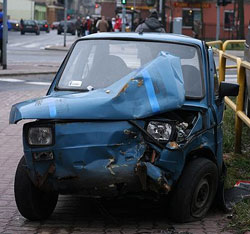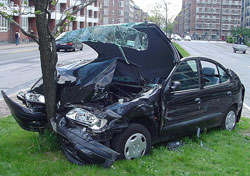
Top stories






AutomotiveHilux Custom Builds offers purpose-built solutions for your business
Toyota South Africa Motors 16 Feb 2026
More news


Marketing & Media
Ads are coming to AI. Does that really have to be such a bad thing?














The organisation says that people's quest for an improved life is often at the root of licensing corruption.
"A driving licence gives easy mobility and it opens doors to employment," says an AA spokesperson. "Driving is an unusual skill in that it is not only a means to an end, but sometimes an end in itself. A driving licence makes one immediately employable as a delivery driver, or perhaps a taxi driver. It's not surprising that people are prepared to bribe testing officials to obtain it."
The AA said that while licensing corruption initially took root on a small scale in the 1990s, it soon reached epic proportions. Willie Hofmeyr, the past head of the Special Investigations Unit, has said that half of all licences issued between 1998 and 2003 were irregular. He described licensing corruption as being akin to organised crime.
The AA says that the country's declining road safety record since 2003 suggests that licensing corruption continues to be widespread.

"A newspaper's recent survey in Durban revealed that seven out of ten of the driving schools it approached were willing to assist applicants who wanted to buy a licence," added the AA. "This wouldn't be the case if driving licence corruption hadn't become a routine occurrence."
Insurance estimates from the late 1980s and early 1990s were that 20% to 25% of drivers on South African roads didn't have a valid licence, and the AA suspects the overall figure might have exceeded 30% and perhaps edged over 40% in a worst-case scenario.
The AA says it is almost impossible to establish the real scale of the problem due to improperly-issued licences being indistinguishable from genuine ones on e-Natis.
"The only way to check if a licence is genuine is to examine the supporting documentation at the original testing station, and with almost ten million licensed drivers on our roads, that would be a mammoth task," said the AA.
The AA says invalid licences increase road death risk and damage the economy by diverting private and public sector resources into traffic crashes. "A driving licence is one of the easiest tickets to employment, but a bought licence is a risk to all road users. The AA believes government should take a stronger stance against licensing corruption, but we are concerned that the jobs crisis in South Africa may be contributing to licence fraud. This might overcome anti-corruption efforts and keep the licensing system hospitable to corrupt officials that take bribes from people desperate for a driving licence to make themselves employable."
